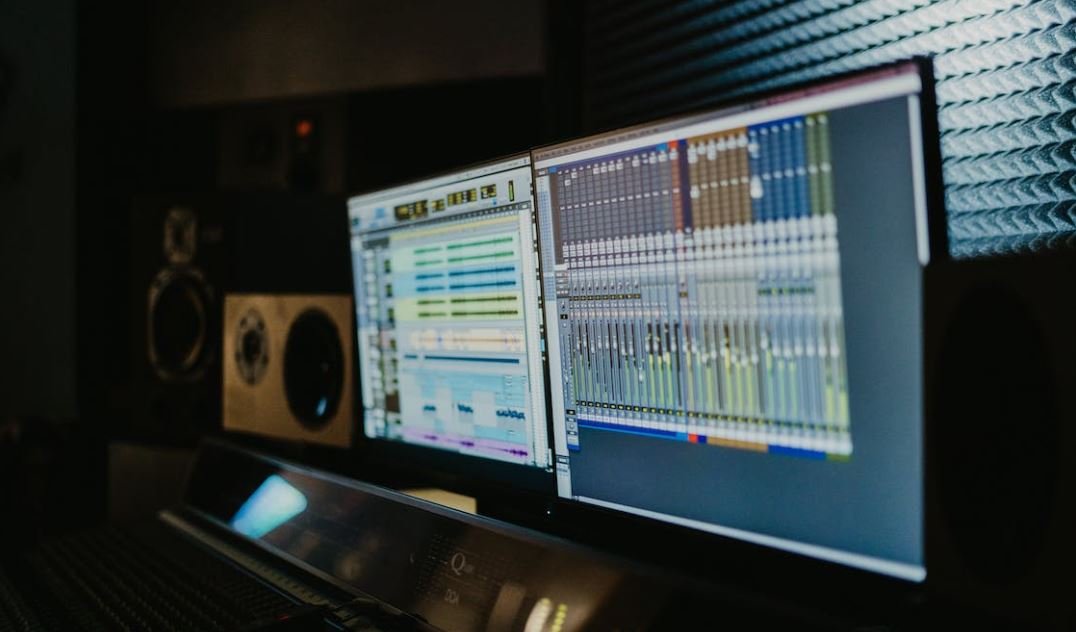Are Music CDs Worth Keeping?
In the age of digital music streaming, many music lovers are left wondering if their collection of CDs is still worth keeping. With the convenience of streaming platforms and the decline in CD sales, it’s natural to question the value of physical CDs. In this article, we will explore the pros and cons of keeping music CDs and help you decide whether to hold onto your prized collection.
Key Takeaways
- Streaming platforms offer convenience and unlimited access to a vast library of songs.
- CDs provide high sound quality and a tangible collection for music enthusiasts.
- Reselling CDs can be a profitable way to make some extra cash.
- Digitizing your CD collection allows for easy storage and access to your favorite songs.
- CDs may become valuable collector’s items in the future.
The Sound Quality Dilemma
One of the main arguments for keeping music CDs is the sound quality they offer. Unlike streams, which are often compressed, CDs provide lossless audio that captures the original recording without any quality loss. High-quality audio equipment can truly make a difference when listening to music. *Imagine hearing your favorite band in its purest form, with every note and nuance perfectly reproduced.* However, it’s worth noting that advancements in streaming technology are closing the gap in sound quality.
The Tangible Appeal
There is an undeniable appeal in owning a physical collection of music. Holding a CD in your hand, reading through the album artwork and lyrics, and displaying the collection on a shelf can bring a sense of nostalgia and *aesthetic pleasure*. Many music enthusiasts appreciate the tangibility and aesthetics CDs offer, especially when compared to intangible digital files. CDs also make for great gifts and can be lent or borrowed, allowing you to share your favorite tunes with friends and family.
The Resale Value
If you have a collection of CDs that you no longer listen to, selling them can be a profitable option. Some rare and out-of-print CDs can fetch high prices among collectors. Websites and marketplaces dedicated to selling used CDs offer an easy way to monetize your collection. *Who knows, that dusty box of CDs in your attic could be worth more than you think!* However, it’s important to manage your expectations as not all CDs have significant resale value.
Digitizing Your Collection
Digitizing your CD collection allows you to enjoy your music without the need for physical discs. By ripping your CDs to digital files, you can have easy access to your favorite songs from any device with no need for a CD player. Various software and services are available to help you convert your CDs to popular audio formats such as MP3 or FLAC. *Imagine having your entire music library in the palm of your hand, ready to be enjoyed anywhere, anytime.* Once digitized, you can also create playlists, shuffle songs, and easily manage your music collection.
The Collector’s Value
While the decline in CD sales may suggest a lack of interest, it’s important to remember that certain CDs can become valuable collector’s items over time. Limited editions, special releases, and CDs from popular artists may gain value as scarcity increases. Collectors seek out rare CDs, often paying a premium for specific versions or signed copies. *Your carefully curated CD collection could potentially become a valuable investment down the line.* However, predicting which CDs will become valuable can be challenging, so collecting for investment purposes is not guaranteed to yield substantial returns.
Table 1: Pros and Cons of Keeping Music CDs
| Pros | Cons |
|---|---|
| High sound quality | Streaming offers convenience |
| Tangible collection | Physical storage space |
| Potential resale value | Sourcing rare CDs can be challenging |
| Digitization for easy access | Declining popularity of CDs |
| Potential collector’s items | Difficult to predict future value |
The Personal Decision
Ultimately, the decision to keep music CDs boils down to personal preference and use case. Consider the value you place on sound quality, the appeal of a tangible collection, the desire for potential resale, and the convenience of digital access. *Remember, there is no right or wrong answer.* If your CDs bring you joy, keep them and continue to enjoy the unique experience they provide. If they no longer serve a purpose or clutter your living space, selling or donating them can be a way to declutter and even make some extra money. The choice is yours.
Table 2: Factors to Consider
| Factors to Consider | Decision |
|---|---|
| Sound quality importance | Keep or digitize |
| Preference for physical collection | Keep |
| Interest in potential resale | Keep or sell |
| Desire for digital access | Digitize |
| Investment potential | Keep or sell |
So, are music CDs worth keeping? Only you can decide. Consider the pros and cons, weigh the factors that matter to you, and make an informed choice. Whether you choose to keep your CDs as a treasured collection or adopt a more digital approach, ensure your decision aligns with your music preferences and lifestyle. Happy listening!
Table 3: Decision Matrix
| Factors | Keep | Digitize | Sell |
|---|---|---|---|
| Sound quality importance | ✓ | ✓ | ✓ |
| Preference for physical collection | ✓ | × | × |
| Interest in potential resale | ✓ | × | ✓ |
| Desire for digital access | × | ✓ | ✓ |
| Investment potential | ✓ | × | ✓ |

Common Misconceptions
There are several common misconceptions surrounding the question of whether music CDs are worth keeping. Let’s break down these misconceptions and explore the realities.
CDs have no value in the digital age
- CDs can be a tangible representation of an individual’s music collection.
- Some collectors value the physical artwork and packaging that CDs provide.
- CDs can offer a higher audio quality than compressed digital audio files.
No one buys CDs anymore
- CDs can still be sold or traded in at music stores or online marketplaces.
- There is a niche market for collectors and audiophiles who still purchase CDs.
- Some artists and bands release limited edition CDs that can be highly sought after.
Streaming services make CDs redundant
- CDs can offer a reliable and uninterrupted listening experience without relying on an internet connection.
- CDs provide ownership of the music, unlike streaming services that only offer access to music through subscriptions.
- Streaming services may not always have the full catalog of an artist’s music, while CDs can provide a comprehensive collection.
CDs take up physical space and are inconvenient
- CDs can be stored in compact cases or binders to save space.
- Physical media provides a backup in case of digital data loss or streaming service shutdowns.
- Listening to music on CDs can offer a nostalgic and tactile experience for many individuals.
CDs are low-quality compared to digital formats
- CDs contain uncompressed audio that provides a higher sound resolution than most digital formats.
- Lossless audio formats, such as FLAC, can preserve the CD quality during digital file storage and playback.
- Digital music files can lose quality due to compression algorithms, while CDs retain the original audio fidelity.

Artists with the Highest Album Sales of All Time
In an era dominated by streaming services and digital downloads, music CDs have faced strong competition. However, some artists have managed to achieve remarkable sales figures through their albums. The table below highlights the top 5 artists with the highest album sales of all time.
| Artist | Total Album Sales | Best-Selling Album |
|---|---|---|
| The Beatles | 600 million | Abbey Road |
| Elvis Presley | 500 million | Elvis’ Christmas Album |
| Michael Jackson | 350 million | Thriller |
| Madonna | 300 million | Like a Virgin |
| Queen | 300 million | Greatest Hits |
The Decline of CD Sales in Recent Years
While CDs were once the primary medium for music consumption, their popularity has experienced a sharp decline in recent years. The following table highlights the decrease in CD sales from 2010 to 2020.
| Year | CD Sales (in millions) |
|---|---|
| 2010 | 326 |
| 2012 | 193 |
| 2014 | 105 |
| 2016 | 51 |
| 2018 | 21 |
| 2020 | 7 |
Top-Selling CD of All Time
Despite the decline in CD sales, some albums have managed to achieve astounding success. The table below showcases the top-selling CD of all time, along with its sales figures.
| Album | Artist | Total Sales (in millions) |
|---|---|---|
| Thriller | Michael Jackson | 66 |
Reasons People Still Prefer CDs
Even with the advancements in music technology, there are still reasons why some individuals choose to keep CDs as a preferred music format. The following table highlights the predominant factors influencing this preference.
| Reason | Percentage of Respondents |
|---|---|
| Physical ownership | 45% |
| Sound quality | 30% |
| Artwork and collectability | 20% |
| Nostalgia | 5% |
CD Sales by Genre in 2021
While the overall popularity of CDs has waned, sales within different music genres can vary. The table below represents the distribution of CD sales by genre for the year 2021.
| Genre | Percentage of CD Sales |
|---|---|
| Rock | 35% |
| Pop | 25% |
| Hip Hop | 15% |
| Country | 10% |
| Jazz | 5% |
| Classical | 5% |
| Other | 5% |
Worldwide CD Manufacturing Stats
Despite the decline in CD sales, the manufacturing and production of CDs still play a significant role in the music industry. The following table displays the worldwide CD manufacturing statistics from 2011 to 2021.
| Year | CD Units Manufactured (in billions) |
|---|---|
| 2011 | 2.5 |
| 2013 | 1.8 |
| 2015 | 0.9 |
| 2017 | 0.5 |
| 2019 | 0.3 |
| 2021 | 0.2 |
Percentage of CD Sales in Physical Stores vs. Online Retailers
The rise of online shopping has significantly impacted the music retail landscape. The table below shows the distribution of CD sales between physical stores and online retailers.
| Sales Channel | Percentage of CD Sales |
|---|---|
| Physical Stores | 70% |
| Online Retailers | 30% |
Impact of Streaming Services on CD Sales
The advent of streaming services has revolutionized music consumption habits. The table below demonstrates the correlation between the rise in streaming subscriptions and the decline in CD sales.
| Year | Streaming Subscriptions (in millions) | CD Sales (in millions) |
|---|---|---|
| 2010 | 3 | 326 |
| 2012 | 20 | 193 |
| 2014 | 50 | 105 |
| 2016 | 100 | 51 |
| 2018 | 150 | 21 |
| 2020 | 300 | 7 |
CD Production Costs
The process of manufacturing and distributing CDs incurs various expenses. The following table provides an overview of production costs for different quantities of CDs.
| Quantity | Production Cost |
|---|---|
| 1,000 | $1,500 |
| 5,000 | $6,000 |
| 10,000 | $11,000 |
| 50,000 | $50,000 |
| 100,000 | $95,000 |
As the music industry continues to evolve, the relevance of CDs in the digital age is often called into question. However, the historical sales figures, personal preferences, and manufacturing statistics depicted in the tables above demonstrate that while CDs may no longer be the dominant music format, they still hold value for collectors and audiophiles alike. Whether it’s embracing the nostalgia, appreciating the tactile experience, or seeking the best sound quality, CDs have left an indelible mark on the music landscape.
Frequently Asked Questions
Can I still listen to music CDs?
Yes, music CDs can still be played on CD players, computers, DVD players, and some game consoles that have a disc drive.
How long do music CDs last?
The lifespan of a music CD can vary depending on factors such as handling, storage conditions, and quality of the disc. However, well-maintained CDs can last for decades.
Do I need to keep my music CDs if I have everything on digital platforms?
While digital platforms offer convenience, owning physical copies of music CDs can provide a sense of ownership, higher audio quality, and the ability to enjoy album artwork and liner notes.
Are music CDs still worth anything?
The value of music CDs can vary depending on factors such as the rarity, demand, and condition of the release. Some CDs, particularly limited editions or those from popular artists, can have significant monetary value.
Should I convert my CDs to digital format?
Converting your CDs to a digital format allows for easy access and playback on digital devices. It can be helpful in preserving the music in cases where CDs may become damaged or lost.
Can I sell my unwanted music CDs?
Yes, you can sell your unwanted music CDs through various online marketplaces, local music stores, or specialized CD reselling websites. The value you receive may vary depending on the demand for the CDs you are selling.
How should I store my music CDs to maintain their quality?
To maintain the quality of your music CDs, store them in a cool, dry place away from direct sunlight. Avoid touching the playing surface and use protective cases or sleeves to prevent scratches and dust accumulation.
What if my music CD gets scratched?
If your music CD gets scratched, you can try using a CD repair kit or professional disc repair services. In some cases, minor scratches can be repaired, improving the CD’s playability.
Can I lend or give away my music CDs?
Yes, you can lend or give away your music CDs to friends, family, or anyone you wish. Sharing the joy of music is one of the great aspects of owning physical copies of music.
Are there any advantages to buying music CDs instead of digital downloads?
Buying music CDs can provide advantages such as higher audio quality, full album experience, the ability to lend or sell CDs, and an alternative for those who prefer tangible items over digital downloads.




